#vote TRUE DEMOCRAT in LA
Text

Los Angeles!!! Pay attention!!!🚨🚨🚨Do your research. VOTE TRUE BLUE. Remember Rick Caruso? We didn’t let him get away with it. Don’t let anybody else.

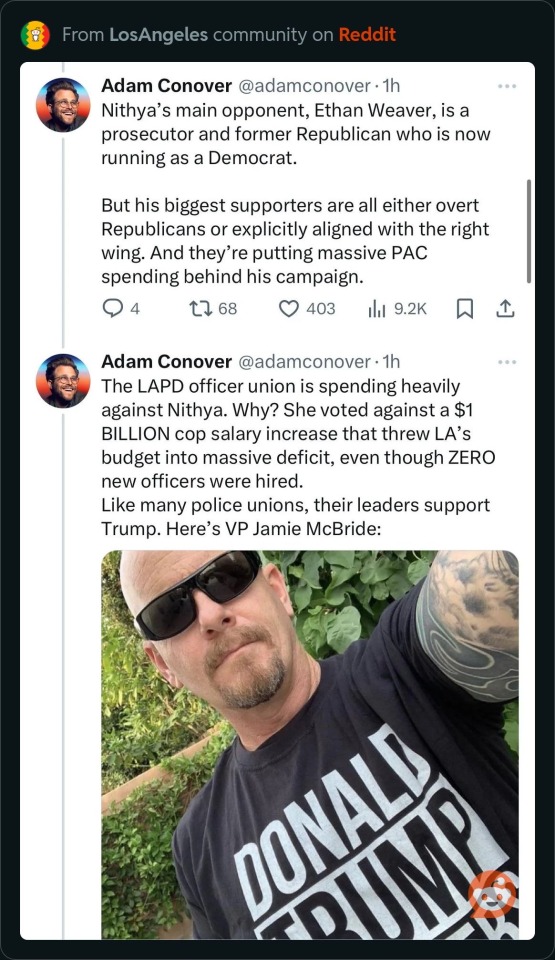
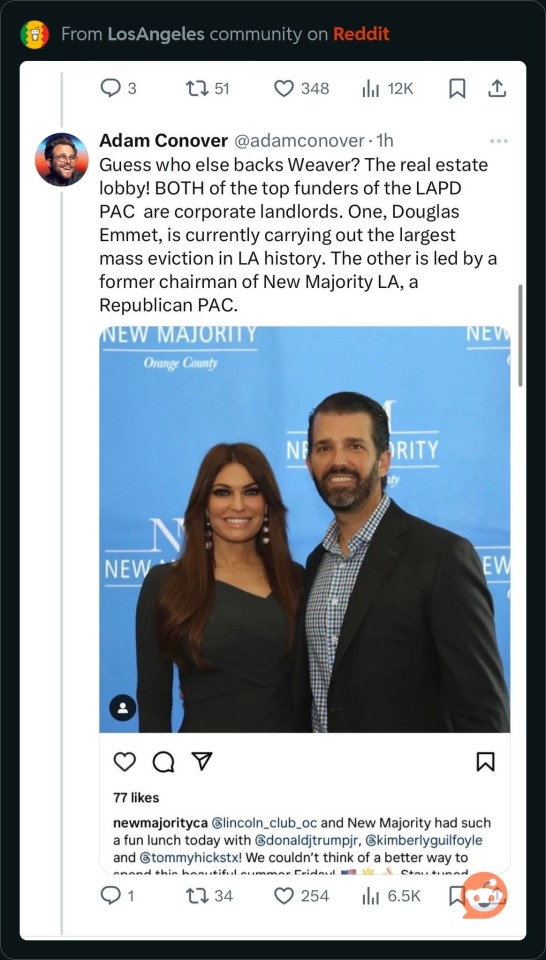
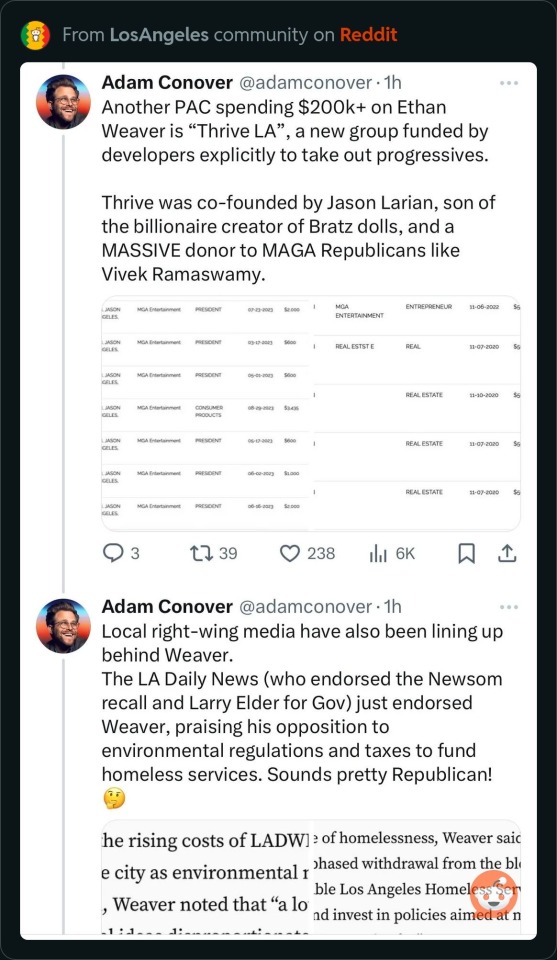
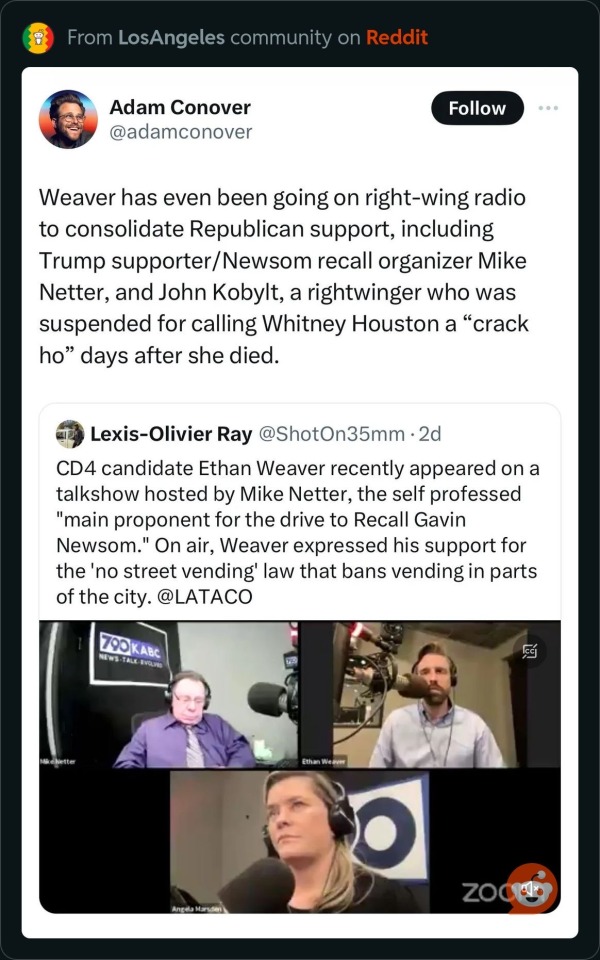
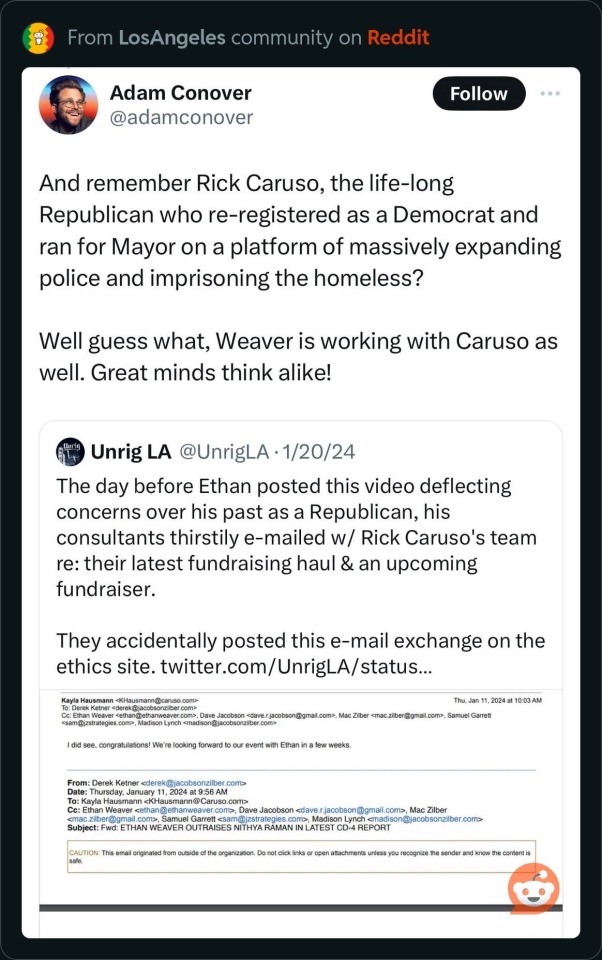
7K notes
·
View notes
Text
You may feel that after a month, it doesn't seem like anything is changing concerning Palestine. You may feel that you aren't helping or that you should give up. But that isn't true!
Especially in the US, politicians are being pressured by their own staffers, who see emails and calls and petitions come in, to stop being so vocally pro-Israel. Major news outlets such as the BBC, The LA Times, and The New York Times are publishing pro-Palestine articles and airing segments dissecting Israeli lies. Starbucks is literally begging for your money, doing sales they've never done before as their workers resign and go on strike. Things are changing. Yes, they aren't changing fast, and there's probably a long way to go, but change takes a lot of time and things are slowly shifting in our favor. Keep going to protests, keep boycotting, and keep speaking out.
And vote! (This is for the US in particular.) I'm seeing a lot of sentiment promoting voting third part en masse or not voting at all, and I can tell you right now that is a surefire way to get people even worse than we already have now into office. Getting third party representatives, especially on state and local levels may work, but I can tell you right now that the amount of zealous Republicans and ignorant Democrats far outnumbers anyone voting third party in 2024. Yes, Biden sucks ass and I wish I could knock some sense into him myself, but Trump is violently Islamophobic and has explicitly stated plans for turning the US into a dictatorship. Lesser of two evils sucks, but it's kind of our only option when the electoral college is in place. At least Biden might back out (and has already halfheartedly started turning) when this is no longer profitable for him. Trump will keep going out of sheer hatred and ego.
As much as it doesn't seem like it, you are never without power. What matters right now is consistent and unrelenting pressure against those in power. No matter what, don't stop talking, don't stop protesting, and don't give up.
#palestine#gaza#from the river to the sea palestine will be free#politics#social issues#anti israel#us politics#voting#boycotting#protesting#free palestine#free gaza
48 notes
·
View notes
Text
"I remember the beginning of 15M [the 15 of May movement of 2011] in Las Palmas of the Gran Canaria. Initially we were four anarchists who erupted into a quiet camp with leaflets that cried out against the elections or the possibility that parties demobilise the movement. The poor university students who then had the leading voice did not have much of an idea of what anarchism was, and those who knew of it, did not have the most favourable views regarding it. On the first day, an assembly was held to throw us out. Today I remember it with a big smile.
That experience was enough to stir things up, people with more political experience or with more empathy towards the persecuted defended us, our adversaries would rethink their supposed pluralism and their democratic convictions and the majority would ask “what the fuck is this anarchy about?”
In the end, the results were surprising: many people stopped judging us by their preconceived ideas and began to judge us by our actions; a few days later, anarchists began to emerge from hiding, everyone was or had been an anarchist but nobody dared to say it until we started the commotion; unpoliticised people began to take an interest in our ideas, to debate and to organise; many declared themselves anarchists without being previously (a group of 4 isolated anarchists became a group of 20, not counting supporters, with the ability to call demonstrations on their own); in a public square, anarchism was spoken of, as perhaps it had not been done in the Gran Canaria since the 1930s of the last century; black flags began to be an identifiable symbol for people (to think that the majority could speak of “mourning for democracy” [this is quite true], that began to appear on posters and statements, as a call to attract libertarians); the anarchists gave workshops or were involved in the commissions and in the resolution of conflicts; there were well-attended assemblies in which, without proposing it and to my surprise, the libertarians were the majority; and so, in a few months, the FAGC [Anarchist Federation of Gran Canaria] was born.
There was another important factor: the anarchists never hid the fact that they were anarchists, and rigthly or wrongly (I still think it was correct), we decided not to interfere in the assembly decisions collectively (there were no previous agreements on any common position in the voting) so as to preserve the autonomy of the movement. Other groups, on the contrary, especially those fishing politically, tried to manipulate the assemblies quite clearly, vetoing proposals and votes, or promoting votes in series, with strategic compulsive applause. In the end people could perfectly identify if the Humanist Party, DRY [Democracia Real Ya!], or whatever, was behind a proposal. The most curious thing is that many of the members of the different collectives or political parties did not openly identify as such, they mobilised under collective slogans, but without making explicit their links or affiliations. This generated some suspicion and animosity among many of the assembled. Is that the tactic that anarchism should follow, that of parachuting and infiltrating? I’ve always thought not.
We do not have to be naive. When we declared ourselves to be anarchists, the people from political parties, those who were there to make personal gains, aspiring journalists, those who were tied to institutions or those who sought to turn 15M into a party, they never stopped attacking us and trying to block or even sabotage any initiative launched by the anarchists. People can be influenced and manipulated, but not everyone and not all of the time. If the boycott of political parties could work when demonstrations without flags were called, and when they appeared, they were booed or taken down, these same people who protested were asking us for advice on what to do in case of arrest and celebrated with us when we blocked evictions with human walls, and when we solved the internal problems of coexistence in the encampment without resorting to the police, or when we resisted with our bodies the eviction of the Plaza de San Telmo. Finally, these same people, regardless of the fear that politicians tried to instill against us, approved by majority, without any orientation other than common sense, the proposal for the organisation of 15M that was based on the libertarian principles, laid out by a libertarian.
Discovering that the anarchists could not only stir things up, but also build, propose and reason, opened the eyes of many people, regardless of the weight of violent legends and the decades of television news, which had shaped their judgments. Based on close contact with us, they stopped evaluating us by what they had heard and began to value us for our activity."
-Ruymán Rodríguez, "Anarchist Identity" (2018)
14 notes
·
View notes
Note
okay "normie median Biden voter ice" got me. That's funny. But also so true! It prob took him a bit to vote dem too (though I believe that Ice would have never voted for Trump). Would love to hear more thoughts on Ice and Mav's politics. Also the list of who they would have voted for if you're willing to share.
i do worry that posting my extremely in-depth headcanons about some of this stuff will have the JKR “wizard shit” effect on my writing and ruin it a little, but ask and ye shall receive
copy-pasted straight from my list of “unhinged compacflt!top gun headcanons” that ive been keeping since september: on ice & mav's politics
16. Since their friendship began, Ice has always told Maverick who to vote for, since Maverick doesn't care enough to pay attention to national politics. They are begrudging ConservaDems (conservative political views, would vote conservative every election if Republicans weren’t actively sending them to war/actively promoting fascism). Ice’s voting record (and after 1988, Mav’s too) 1980-2020—note that he has always considered himself an “educated moderate”: 1980: Reagan. 1984: Reagan. 1988: Bush. 1992: Bush. 1996: Clinton (reaction to aftermath of PGW. Doesn’t care that Clinton enacted DADT because “I’m not [redacted], so it doesn’t apply to me”). 2000: Gore (refusal to vote for another Bush). 2004: Kerry (Mav votes Bush this year out of spite as he and Ice are going through their break-up). 2008: McCain (Navy loyalty). 2012: Obama (liked him as a person/worked closely with him, didn’t like his policies so much). 2016: Clinton (no other alternative). 2020: Biden (actually liked/previously worked with Biden, and now actively married to another man and therefore had to make some liberal concessions). 2024-onwards they will vote for any Democrat as long as they aren’t a “socialist.”
17. Also, Maverick didn’t vote in 2016. Partially because in my universe the TGM mission takes place that November, very near the election, and he has bigger fish to fry (something Ice will later take him to task for), and partially because I genuinely think he wouldn’t be able to stomach either mainstream candidate and probably would’ve voted for Libertarian Gary Johnson, which might have torn his relationship with Ice to shreds a few days before schedule. “Are you fucking kidding me? Johnson? Pete, this moron’s moronic party wants to abolish the driver’s license—” / “—Yeah, and then I could ride your sweet wheels with no problem whatsoever—maybe he’ll abolish pilots’ licenses, too, I’d like to see that—” / “If you vote for Gary fucking Johnson, I will very happily stop footing the bill for your piece-of-shit airplane, and you can see how useful your pilot’s license is then—” / So Mav didn’t vote in 2016.
35. In terms of what he Tweets: I do foresee, post-retirement, Ice basically becoming a neoliberal military intellectual type on Twitter a la Mark Hertling (look him up on Twitter). Bio: “Retired @SECNAV. Advisor @WhiteHouse and @VoteVets. Contributing writer @TheAtlantic. Interested in geopolitics & modern warfare. Aviator, husband, Padres fan. [American flag emoji]” Only posts pictures of himself and Maverick at three specific annual events: 1. their wedding anniversary (“36 years with this fool and he’s still surprised to find out that I like the F-5 better than the A-4 #happyanniversary”), 2. every EAA Airventure (huge airplane convention), 3. San Francisco’s Fleet Week (which of course they MUST attend, they even headline it in 2018). Informative, analytical, highly-respected. Maybe goes on CNN or NBC all the time to talk about civil-military relations shit (aversion to FOX since the start of the Iraq War). Gonna say he had like four really viral threads about Russia and Ukraine in April or May and so has 300k followers or something like that. He has a personal website that links back to his Twitter and every essay he writes for international publications, with a pretty braggadocious bio (something along the lines of “Tom Kazansky has directly almost started global nuclear war twice in his life, and in the thirty-year gap in between, sold the Swiss half their entire goddamn Air Force and directed an entire Fleet during the Iraq War”). Lots of tweets like “Military aviation hot take: Compared to the F-22, the F-35 is a waste of money. Source: husband with 400+ hours of F-35 experience.” / “[Quote tweet of Russian Foreign Minister boasting about Su-57 production lines] Oh, so you guys finally figured out how to make more than one every other year?” / “Analysis of the failure of Russia’s Black Sea Fleet in Ukraine, from an ex-US Pacific Fleet Commander’s perspective: a short [thread emoji] [This thread gets 26k likes and 4k retweets]” / “This weekend my husband & I flew in to @EAA Oshkosh #OSH19 & took home first place for best P-51. Not to brag, but.” (A reply to this tweet: “Sir, you really know how to bury the lede that your husband is Adm. Pete ‘Maverick’ Mitchell. I had to look it up on Wikipedia.” / @TKazansky: “What, was it not obvious? Who else could it have been?”) Also, I see him writing a whole bunch of op-eds for international political magazines a la Tom Nichols (look him up on Twitter too). Writing analyses of recent geopolitical/military events for the New York Times, the New Yorker, the Bulwark, the Navy Times, the Atlantic, Bellingcat, etc. Not so much focused on domestic issues (but VoteVets [socially progressive vets’ group] board member, and ardently pro-democracy, yay!). He’s a smart guy.
37. This is not a headcanon, just kind of a… a real-life implication. My Ice was Deputy Commander of Third Fleet in 2003, meaning he’d have been there in command of the USS Abraham Lincoln when President Bush gave his “Mission Accomplished” speech aboard that ship in May less than 2 months after the initial American invasion of Iraq. Very premature & embarrassing. Ice would’ve been in direct contact with Bush/Cheney/NSC bureaucrats many, many times during the war. I genuinely believe this is what pushed him over the edge into firm liberal territory.
#they are the opposite of social liberal fiscal conservative#social boomer and fiscal moderate and foreign policy liberal#as they are straight-passing they are also conservative-passing in that they claim they are conservatives because it upholds their view#of American masculinity (as many conservative men do) but they're not actually conservative#sometimes I do think I stumbled upon a stroke of genius with my 'mav is a libertarian' hc though#im sure im not the only person to have had that hc but still. seriously ur gonna look at that mf and tell me he's not a libertarian#guys. when I tell you I have thought entirely too much about this stuff I mean it#top gun#top gun maverick#top gun headcanons#tom iceman kazansky#pete maverick mitchell#I have more of their foreign/domestic policy opinions but I think if I posted any more of this stuff#you would see me for who I am (insane)#thank you for the ask hahahaha#<3
56 notes
·
View notes
Text
succession s4 e7 recap: 🍆🍆🇺🇸
this week's recap is nothing short of a trauma dump from this here political operative.
never in my life did i think i would relate to nate, but there truly is nothing scarier than election eve....
we start the episode off the disguisting brothers, preparing for a long night at ATN.
tom has seemingly still not slept and greggory peggory is still recovering from his night on the town with one lukas mattson.

a few levels up, team shiv and team roman are also gearing up for a long night.
other than the distinct lack of booze, i'd say the vibes are pretty realistic.

roman with mencken was always my least favorite version of roman. this episode is no exception.
in fact, i think i'm demonstratively anti-roman in this episode.
and gerri is nowhere to be seen:((
shiv is worried about mattson letting greg in on their little plans.

as she should. rule number 1: don't talk to greg.
rava has to deal with kendall yet again.

this woman is a saint. someone save her.
ken is still on his "everything i do, i do for my children"-shit. you know, everything except ensure that a fascist doesn't make it to the white house.
honestly, this episode is really, very good.
i never wanna watch it again.
mencken bonds with roman over the fact that they both hate the word 'narrative'.

he is prepared to lose and for a millisecond i was hopeful.
tom and greg do coke behind a whiteboard.
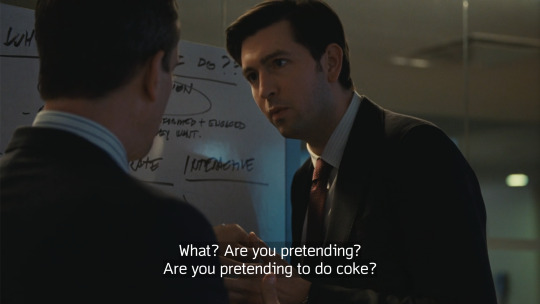
this is the right wing politics that i know. 10/10 great representation.
however, we all know how tom is with drugs. he does them all wrong and feels wrong and immediately begins spiraling.

my body is very bad at many things, such as producing enough serotonin, but years of campaigning means my stomach has superpowers.
gas station sushi? no problem. leftover pizza from the night before? don't feel a thing.
i'm stronger than tom, is what i'm saying. activists just do it better, i guess.
connor represents all politicians, all the time:

now, i respect all the politicians i work for loads, but there is just something inherently narcisstic about having six people cater to your needs constantly.
and most of them are unfortunately not as funny as connor.
tom is being a little shit.

with no moves left, shiv tells him she's pregnant.
it's not entirely unreasonable of tom to ask if it's even true, or if it's a tactic telling him that, but he's still a little shit for doing it.
i hate hate hate that we only got like four minutes of shiv girlbossing before she was back to doing everything wrong again... i support women's wrongs, but c'mon:(((
connor is by far my favorite part of this episode.

i just think they are neat<3
ken has his sister's back and i could rewatch those few seconds over and over and over.

fuck tom and his stupid touch screens.

and fuck roman too.
basically, there's a fire in wisconsin and ballots have been lost. historically, those votes have been overwhelmingly democrat, but roman wants them to call wisconsin for mencken, disregarding the burnt up ballots altogether.
he sends his talking points to ravenhead, who goes on an on-air rant, and the rest of the sibs take to the floor at ATN as well, much to greg's dismay.
shiv tries to threaten greg so that he doesn't tell her brothers about her plans with mattson.

as much as i love shiv threatening to pull greg's organs out his asshole, it isn't very effective.
there's an incident with wasabi.

i question a lot of decisions made in this episode, but perhaps most curious of all is the choice of lemon flavored la croix??????



i would laugh more at this if i wasn't so ridden with anxiety.
connor lands an embassadorship in the new mencken administration.
willa is skeptical of the fascism etc but still....


connor makes a speech. i love it when he does that.
we get a brief moment with the old guard, gerri not included.

we get basically no karl:/
instead we get roman being an asshole scene after scene after scene.

pls stop i can't take it anymore!!!
kendall is torn between team shiv and team roman, presumably because he can't decide what outcome will be most helpful to his own ambitions.
oh and there's the whole "my daughter might be in danger if mencken wins", but that seems to be secondary.

because he was vulnerable with shiv for a minute, he feels even more betrayed when he learns about her plans with mattson.

from greg of course. fucking greg.
the hugging era is truly a thing of the past.

i wish i had more jokes, but honestly this episode just made me very, very sad.
roman, ken and tom decide to call the election for mencken, despite shiv's desperate attempts.

and i just have to say, i know shiv isn't altruistic. i know she thinks a jimenez win will benefit her more than mencken will. i knooooow.
it's still very sad.
they call it for mencken.

me every single election night.
roman is very much in the camp of nothing fucking matters, and i guess he is right in a way.

it won't really matter to him or kendall.
it will for sophie, though. it will for jess.
ouffff....
roman now has a direct line into the west wing.

that being said, i don't think he's a very reliable partner for them.
in the end, mencken will do what is good for mencken. the same goes for roman.
i think ken might end up regretting this whole endeavor very, very soon.
tom becomes the face of this political scandal.

can't wait for it to bite him in the arse.
shiv makes a final rallying cry to mattson, but it somehow feels hollow to me.

this shiv girlie is starting to lose hope.
anyway, rava doesn't want ken to come over to see the kids because he prioritized his own project of becoming his dad over keeping them safe.
i guess i agree with him that the poison does, perhaps, drip down.
what a depressing episode!
i'm glad we are getting something to celebrate next week - logan's funeral wiii !!
#succession#succession hbo#succession spoilers#succession s4#succession recap#greg hirsch#nick braun#nicholas britell#tom wambsgans#matthew macfadyen#roman roy#kieran culkin#shiv roy#sarah snook#kendall roy#jeremy strong#rava roy#natalie gold#jeryd mencken#justin kirk#connor roy#alan ruck#willa ferreyra#justine lupe#adam godley#darwin succession#j. smith-cameron#gerri kellman#peter friedman#frank vernon
35 notes
·
View notes
Text
[This is eventually about P&P, but takes awhile to get there]
My best friend and I had a debate about whether there's an ethical component to being wrong about something when you are perfectly capable of being right. That is, we were discussing circumstances when you are equipped (through ability and/or access to information) to reach a legitimate conclusion and simply don't. Is this morally wrong?
We weren't talking about fandom stuff, originally, but about politics and how misinformation spreads less through an abundance of bad actors than through maybe one or a few bad actors, plus a ton of people who simply don't check (or sometimes even care) that X thing fitting their worldview is true.
We've all done this, I'm sure, but the first example that came to mind for me was a viral post that went around back when the US Republican Party had a majority in the House of Representatives. The post in question was started by a popular more-leftist-than-thou blog, and was about how the latest Republican evildoing had garnered some Democratic votes, too, and thus Democrats should not be seen as all that different, blah blah. I knew people who approvingly reblogged it! Meanwhile in reality, not a single Democrat had voted for the thing, and the OP was either lying or (more likely) made an assumption without checking that it was true.
So we were talking about whether that mistaken assumption (supposing it was a mistake for the purposes of discussion) had a moral dimension—is it morally wrong to make a mistake of that kind? Is it morally wrong when it's so easy to check if a major Congressional vote is party-line or not, but okay when it's not so much an objective fact that it's easy to get reliable information about? What about the people who uncritically reblogged the post, who might also have checked? Some are people I otherwise respect, so ...?
Nevertheless, my friend is much more inclined to be forgiving about this kind of thing, and we did end up talking about how it applies to less momentous matters. John Wiltshire, for instance, wrote a passage (and later an essay) about Darcy's smile and how some critics have flat-out rejected Elizabeth's memory of him smiling at her, even though it's explicitly mentioned multiple times by Austen. Sure, a formal critical analysis that argues that Elizabeth is retroactively manufacturing the existence of those smiles is fundamentally mistaken and (however unintentionally) misrepresenting what happens in the novel. That's irritating to be sure, but is it wrong?
Even I wouldn't argue that every statement that turns out to be mistaken is a moral misdeed. But I do feel that there is a moral component to understanding the world around us as well as we are truly capable of doing.
And then I reblogged that earlier post about how Elizabeth's judgmental wit is glamorized and idealized, but leads her to make serious mistakes of judgment, though the consequences of those mistakes are mainly felt by Elizabeth herself, and to some extent by Darcy (whose shitty proposal makes it difficult to feel that badly about Elizabeth's excoriating refusal, even where she's partly or wholly wrong about him).
Darcy repeatedly dismisses Elizabeth's misjudgment as not really that big of a deal and certainly not a moral failure. Elizabeth does see it as a moral issue, though. This is in part because her misjudgment led her to actually do something (throw Wickham's lies in Darcy's face as part of her rejection, which could have made it very easy for Darcy to reject the whole). But it's also because she personally had solid evidence of Wickham's duplicity and inconsistency, and the abilities she prides herself on could have led her to see through him, she just ... didn't, due to her vanity and prejudices.
This colors the entire rejection for Elizabeth; she regards her actions as despicable and, in retrospect, humiliating, despite Darcy taking pains to excuse and forgive her misjudgment at the end of the letter. Even months later, she thinks of her refusal as wrongly petulant and acrimonious. Despite Darcy's own mistakes, Elizabeth is grateful that he values her judgment enough to forgive the manner of the refusal and the objective mistakes within it, and to identify where her criticisms are legitimate and then act on them. When he's blaming himself after her engagement, she's the one who points out that her behavior that day at Hunsford also merits reproach, which Darcy denies.
Undoubtedly this is partly because he loves her and is inclined to forgive anything she says or does. But there is that question of whether she actually was wrong—not just mistaken, but failing ethically—to believe Wickham. I've noticed that fandom (and even more, pop culture takes) tend to shrug off her role in the Wickham subplot and to elide her worst accusations in order to represent her rejection as purely righteous and accurate. I find it annoying both as a Darcy fan and as someone who really likes Elizabeth's overall character arc in the novel and sees it as the heart of the book.
But so much of her mistake with Wickham is a mistake in personal judgment. She's wrong about pretty much his entire character, and also wrong about Darcy in some pretty damn significant ways. And it occurred to me that maybe some people feel more like Darcy in this respect—a private error in judgment, however severe, is not a moral misstep, it's just a mistake and everyone makes mistakes.
But one of the things I like about Elizabeth, and have for a long time, is that when she's confronted with her mistakes, she's willing to turn the harshness of her judgment on herself as much as on others. She can be an ethically demanding person but not hypocritically so. Even when she's no longer angsting over her mistakes, she doesn't forget that she made them or cease to regard them as failings on her part. She doesn't sentimentalize her conduct or motives when they are not truly sentimental, but based more on pride and vanity.
I respect that a lot—I don't think most people, then or now, are willing to face themselves the way Elizabeth does, refuse to soften their culpability, and still come out with a sense of dignity, humor, and entitlement to respect. And I feel like treating this as ... you know, Elizabeth is just so great that she treats an understandable mistake as a moral misstep, etc, undercuts the psychological journey/arc of her character.
But I'm biased, because I do tend to judge willful ignorance and willful mistakes more harshly than many people do. So maybe part of the reason that Elizabeth's mistakes in judgment seem very significant to me, on a par with Darcy's failings, and also why I respect how she handles those mistakes once she's aware of them and see it as essential to the novel, is because my own philosophy can be pretty harsh on this point.
It does make this a very rewarding novel for me, though!
#anghraine babbles#us american blogging#cw politics#austen blogging#austen fanwank#elizabeth bennet critical#but not—it's a factor in my affection for her and her journey tbh#that's why i'm so stubborn about it!#elizabeth bennet#fitzwilliam darcy#otp of otps#long post
73 notes
·
View notes
Text
Ok, so I was curious if the way Nebraska and Maine split their electoral votes would actually get elections closer to their popular vote outcomes.
So, the way they do it, each congressional district does a popular vote for 1 Electoral vote, then the winner of the state popular vote gets 2 additional points.
Let's look at 2000 first. Now, we are going to assume that the way the congressional districts broke down for their elections would also be how they voted for President (not inherently true, especially in really close races, but....close enough.)
The Republican Party won 221 seats, while the Democratic Party won 212 and independents won two.
30 States went to Bush in the popular vote. So +60
That means 20 states went to Gore (+40) plus all 3 of DC's votes.
So 281 vs 255. Bush still wins, and by a much wider margin than he actually did.
Ok, let's look to 2016.
241 R vs 194 D. 30 States to Trump (+60) and 20 to Clinton (+40) plus DC (+3).
301 Trump v 237. So Trump still wins, though by a slightly smaller margin.
So....no. This system doesn't really seem to help end results. The issue remains that population density isn't uniform- so dense populations (Like LA or Houston) end up getting under counted compared to the vast swaths of sparsely populated congressional districts. And while the democrats will end up with *some* votes from Texas, and Republicans will end up with *some* votes from California, these don't have the proportionate outcome they should because of that imbalance.
This system still over-rewards candidates for winning by very very slim margins as well. Winning by 51% gets the same result as winning by 90%. In 2016, the actual votes for congress, by party, broke down to 49.1% vs 48.0%, but the seats ended up 241 v 194, because the Republicans won a lot of those races by very very very tight margins, while Democrats tended to win theirs by much wider margins (and in larger districts).
Look at these races from Texas's congressional election in 2020 for example:

863,875 votes for Democrats vs 852,932 votes for Republicans. That's a 50/50 split, but 80% of the seats went to Republicans. Now, this is an example to show the most extreme cases. Statewide, Democrats got 44% of Congress votes in Texas, but hold only 36% of the seats. Yay Gerrymandering- Go look up Texas Congressional District 35! (It's where I grew up!)

It's drawn that way to pack in blue votes from Austin, San Marcos, and much of SA, and keep the surrounding districts (Hays, Bexar, and Comal county especially) from swinging to 51% blue. So. It IS a problem (But not an 80% problem. lol)
Now, that said, I do think it has *some* advantages over the pure EC. More, smaller, popular vote elections does mean that states aren't *as* likely to go 100% for one candidate or another (it does still happen though. Imagine if Party A won every congressional race for 51%. You'd still end up with 100% Party A, and 0% Party B, when it should be an even split. This is why Gerrymandering happens.)
It would also reduce the influence of "Swing States" a lot- this is probably the biggest advantage. There are a lot more "swing districts" than "swing states" and it would spread that influence around more.
#electoral college#someone got me thinking about elections again#numbers make dopamine in my brain#the electoral college makes me angry#its a complicated feelinh
59 notes
·
View notes
Text
USA Presidency CONT; RE:
This thread emphasizing the importance of voting and the evil of both Biden and Trump
Please read and share the linked thread. It is important to acknowledge that if you have the power to vote, that opting to not use it at all is selfish and counterproductive to the progress you wish the world was making. You look at both candidates and the duopoly as a whole, and you go 'I don‘t want to support either of them!'
This is a very sane thought to have. Rejection of the duopoly and realizing the popular candidates and imposition of 'well you have to have bad (1) or bad (2)' is inherently oppressive is a first step in the right direction. When you choose to opt out of participating in the system instead of attacking it from the inside, however, your agency and influence is lost. To remove yourself from the responsibility of contributing to society because it is easier is to be lazy, complacent, & priveleged.
After you know that the duopoly is bad, the next natural question to have is 'What are the alternatives?'
The inherent corruption of American politics as they are now tends to make ideally-progressive people tired. The disharmony makes putting effort in to understand it unappealing. The chances that you and your friends don‘t understand the meaning of the words and labels used in political discussions, or the procedures and technicalities involved in electing these powers is high. You dislike the concept in itself, so your most surface level reaction to it is to not engage.
You will have to stop correlating 'the act of learning about something' to 'enjoying the subject matter'. You will have to learn about politics and about history and they will have to be subjects that discomfort and enrage you. You will have to develop your own understandings of the labels imposed onto your political society if your true goal is to be free from them. Ignoring them is not being free from them. You cannot effectively resist what you do not understand.
I am 16. I am not of age, so I cannot vote. I am a volunteer for Claudia De la Cruz‘s presidency campaign
votesocialist2024.com | twt:@votesocialist24 | insta:@claudia_karina2024
You can read in depth about Claudia and her vice-president candidate Karina Garcia on their website and hear them on their socials. Personally reading how they define themselves, their ideals, and their program will be the best way to understand and resonate with them. For the sake of an introduction and the purpose of this post, I can summarize:
Claudia De la Cruz is running for President of the United States in 2024. Karina Garcia is running for Vice President alongside her.
They label themselves with the socialist party rather than democrat or republican. They need help from of-age petitioners to obtain ballot access. They’re aiming for ballot access in as many states as possible. Their names being a pre-set option on the ballot will increase their visibility.
They collaborate with the Party for Socialism and Liberation, established in 2004. Their ideal is to dismantle capitalism and imperialism.
The candidates have been involved in activism for the majority of their lives. Relevantly, they have been speakers at protests against the US‘ enabling of the occupation and genocide in Palestine.
The way official media frames Trump and Biden as the only two options is only true if you let it be. The imposition that the duopoly is simply too powerful and popular for resistance to do anything is what they count on discouraging you.
No matter what, there will always be another option. There will always be the option of a world that doesn‘t let political powers desecrate their own population for the purpose of funding genocide and slavery. It‘s a simple fact that relies on your love and your anger. As long as the people exist, the option of the people‘s freedom exists. And we know the people will always exist. All you have to do is fight and celebrate for it.
Even if you are not of age to vote, learn about the other options. Use your knowledge to influence and motivate the people around you who can. Talk to your friends and family about politics and study the options together. Attend teach ins and protests. Read articles and watch videos from independent media sources.
Part of life is advocating for it.
3 notes
·
View notes
Text
Another election cycle, another horde of people ready to dismiss anyone with a view anything less than BNMW as not really human. Yep, it's that time of year where anyone who says anything that can so much as be construed as remotely critical of Democrats can expect to be called a Russian Nazi-bot. Because who needs honest evaluation of facts and ideas when just dismissing people outright means you can continue to shut your eyes, cover your ears, and sing "la la la"?

There is no morally pure option.
Wow. What a ringing endorsement. 🙄
Here's the thing, when you're basically admitting that the candidates suck, there is no need to invent a secret army of internet robo-boogeymen conspiring together in order to explain voter disengagement - the fact that the candidates suck is the cause. There being no good choices isn't exactly motivating.
Funny how people can be so eager to just accept the dystopian idea of there being no moral option, instead of asking why the hell not - but apparently anyone who does is an agent of some kind, right?
Anyway beep boop I guess.
Sometimes I think people get so caught up in screaming VOTE they forget what the purpose of voting is supposed to be.
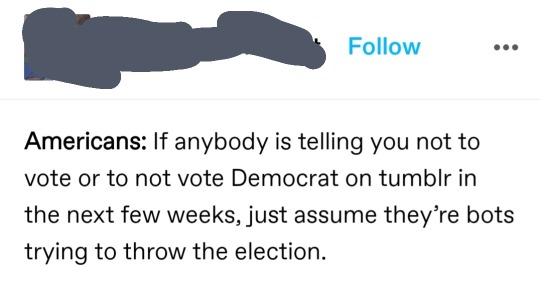
Apparently even people who do vote and encourage voting literally can't even be anything other than Democrat.
Imagine being in denial this deep...

This is actually discouraging people from engaging with ideas and coming to their own conclusions.
Here's how you do it: If you actually want to encourage people to vote, rather than just act superior from your high horse, then actually encourage. Bullying people is not encouraging. Threatening people about the other side is not encouraging. And dehumanizing people for daring to have any thoughts on the matter is not encouraging.
If you have a particular candidate in mind, state their merits why people should vote for them. Note: I said why someone should vote FOR that candidate, not merely why they should vote against the other guy they already were not voting for anyway. (Votong against is not how elections were ever meant to work.) Other guy bad does not make your guy good. Tell us why your guy is good.
Make a list of the candidates positions on things, what they have committed to do, and what they've already done. Important: make sure it's all actually true!
If you find you don't have much to put on that list, that there are no moral choices, then blame the candidate for being shit, not the people for being aware of it.
32 notes
·
View notes
Text
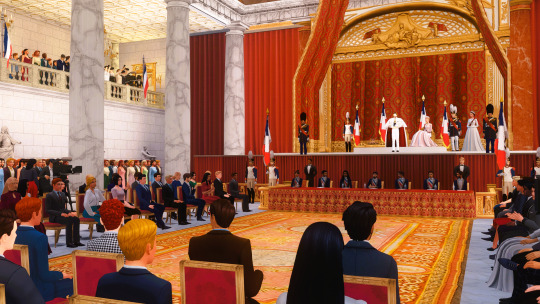





State Opening of Parliament and Emperor Napoléon IV's second government
GREAT DECIPHERING. Emperor Napoléon IV opens his speech to the Parliament with congratulations: the Simpartist party wins a large majority! In the evening, the results gave the imperialist party about 73% of the French votes. The Emperor noted that "confidence in the French institutions had been restored" thanks to a "great work of reconciliation". According to His Majesty, the Empire is therefore "the democratic solution of the Francesim".
Finally, His Imperial Majesty shares his priorities for the new legislative year, which he will largely entrust to his Prime Minister. On the agenda: the economy, public services, industrial and employment laws, but also national dignity by strengthening the army and funding French research and universities.

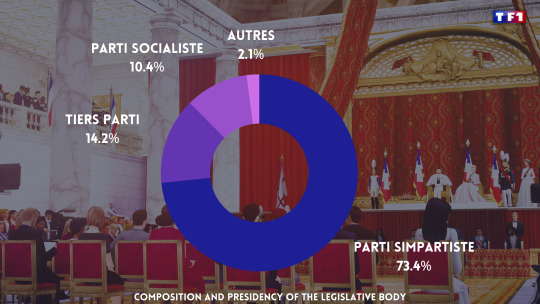
It was the Grand Master of the Empire, the official communication officer of the Tuileries Palace, who announced the results of the legislative elections live on the first French television channel. The very strong victory of the Emperor's party promises great stability for the nation. Behind him, the Tiers Parti, a far-right republican party. Finally, the Socialists won a small victory, obtaining more seats. The remaining ecologists and communists obtained a very small percentage, as they did not wish to ally themselves with the socialists.
As a reminder, the imperialist party is itself composed of two allied tendencies: the moderates and the conservatives. The conservatives won the most seats in this election. This should allow the Emperor and his second government more room for manoeuvre in terms of reform.

Above. Official portrait of the second government of Emperor Napoléon IV, the Charlemagne de Maupas government. At the Château de Versailles, the Council of Ministers' room.
What powers does the Emperor have now?
Unlike many other monarchical systems, the Emperor of Francesim has active power, both executive, legislative and judicial. The Emperor is not only a symbol of the nation's leader but a true political leader with a wide range of powers of action. He is therefore not bound to a certain neutrality, although this may be observed regularly by political tradition. In theory, His Imperial Majesty does not need Parliament to pass laws. Nevertheless, again as a matter of political custom, Emperor Napoléon IV made sure to present all his bills to the Corps Législatif. To obtain a majority in Parliament is for the Emperor the assurance :
To see imperial laws less debated, and therefore to be able to legislate more without democratic censorship.
That his political government, which is responsible for its actions unlike the Emperor, will not be censured or removed by legislative vote.
TRADUCTION FR
GRAND DECRYPTAGE. L'Empereur Napoléon IV ouvre son discours au Parlement par des félicitations : le parti Simpartiste remporte largement la majorité ! Dans la soirée, les résultats ont totalisé au parti impérialiste environ 73% des votes des français. L'Empereur constate que "la confiance en les institutions françaises a été ramenée" grâce à un "grand travail de réconciliation". Selon Sa Majesté, l'Empire est donc "la solution démocratique de la Francesim".
Enfin, Sa Majesté Impériale partage ses priorités pour la nouvelle année législative, qu'il confiera en grande partie à son premier ministre. Au programme : économie, services publics, lois industrielles et de l'emploi, mais aussi la dignité nationale par le renforcement de l'armée et le financement de la recherche et des universités françaises.
C'est le Grand Maître de l'Empire, chargé de communication officiel du palais des Tuileries, qui a dévoilé en direct les résultats des législatives sur la première chaîne de télévision française. La très forte victoire du parti de l'Empereur promet une grande stabilité pour la nation. Derrière lui, le Tiers Parti, un parti d'extrême droite républicain. Enfin, les socialistes obtiennent une petite victoire, obtenant davantage de sièges. Les écologistes et les communistes restant obtiennent un très faible pourcentage, n'ayant pas souhaité s'allier aux socialistes.
Pour rappel, le parti impérialiste est lui-même composé de deux tendances alliées : les modérés et les conservateurs. Ce sont les conservateurs qui ont obtenu le plus de sièges pour ce scrutin. Ce qui devrait permettre à l'Empereur et son second gouvernement plus de manoeuvres en matière de réforme.
Contrairement à beaucoup d'autres systèmes monarchiques, l'Empereur de Francesim possède un pouvoir actif, à la fois exécutif, législatif et judiciaire. L'Empereur n'est pas seulement un symbole de chef de la nation mais un véritable dirigeant politique avec une large palette de pouvoirs d'action. Il n'est donc pas tenu à une certaine neutralité, bien qu'elle peut être observée régulièrement par tradition politique. En théorie, Sa Majesté Impériale n'a pas besoin du Parlement pour passer des lois. Néanmoins, toujours par coutume politique, l'Empereur Napoléon IV a veillé à présenter tous ses projets de lois au Corps Législatif. Obtenir une majorité au Parlement, c'est pour l'Empereur l'assurance :
De voir les lois impériales moins débattues, et donc de pouvoir davantage légiférer sans censure démocratique.
Que son gouvernement politique, qui est responsable de ses actions contrairement à l'Empereur, ne soit pas censuré ou destitué par vote législatif.
#ts4#simparte#gen 1#ts4 royal#royal simblr#sims 4 royal#sim : charles#napoleon#sims 4 royalty#sims 4 royal family#versailles#sim : charlemagne
34 notes
·
View notes
Text
By Jake Johnson
Common Dreams
July 20, 2023
"Republicans are making clear they will defend their corrupt allies on the Supreme Court no matter what," said one campaigner.
The Senate Judiciary Committee on Thursday advanced legislation that would require the U.S. Supreme Court to adopt an enforceable code of ethics and adhere to stronger disclosure rules following a series of revelations about the luxury trips and other gifts justices have received from right-wing billionaires.
Led by Sen. Sheldon Whitehouse (D-R.I.), the Supreme Court Ethics, Recusal, and Transparency (SCERT) Act advanced out of committee without any Republican support.
In remarks ahead of Thursday's vote, Whitehouse said he believes "the Supreme Court has been captured by special interests, much like a railroad commission in the 1890s might have been captured by railroad barons to decide things their way," pointing to recent news that "six—six—politically-active right-wing billionaires have been paying household expenses, engaging in financial transactions, and providing massive secret gifts of travel and hospitality for at least two justices."
"We are here because the highest court in the land has the lowest standards of ethics anywhere in the federal government, and justices have exhibited much improper behavior, not least in hapless efforts to excuse the misdeeds," the senator added. "This cannot go on. Defending this behavior defends the indefensible."
The SCERT Act would give the Supreme Court 180 days to adopt a binding code of ethics. Supreme Court justices are currently the only federal judges in the U.S. not bound by a code of conduct.
According to a summary released by Whitehouse's office, the bill would also "require parties and amici curiae before the Supreme Court to disclose any recent gifts, travel, or reimbursements they've given to a justice" and "create new recusal requirements governing gifts, income, or reimbursements given to judges," among other reforms.
"Today, Senate Judiciary Democrats demonstrated true leadership by addressing the growing ethics crisis on the Supreme Court," Brett Edkins, managing director for policy and political affairs at Stand Up America, said in a statement. "The SCERT Act would establish a desperately needed code of ethics for all Supreme Court justices—liberal and conservative—to ensure that the highest court in the land isn't held to the lowest ethical standards."
"The American people deserve a Supreme Court that is free from corruption and inappropriate influence," Edkins added, calling on Senate Majority Leader Chuck Schumer (D-N.Y.) to bring the bill up for a vote "as soon as possible."
The measure faces uncertain odds in the narrowly Democratic Senate and stands no chance of passing the GOP-controlled House.
Republicans spent much of Thursday's Senate Judiciary Committee hearing offering hysterical objections to Whitehouse's bill. Sen. John Kennedy (R-La.) declared that, if adopted, the legislation would "destroy the United States Supreme Court as an institution," a message echoed by Sen. Lindsey Graham (R-S.C.).
"This is a bill to destroy a conservative court," said Graham. "This bill is going nowhere. All of us are going to vote no."
GOP members of the judiciary panel also sought to attach a number of amendments to the legislation, including one by Sen. Ted Cruz (R-Texas) aimed at blocking any future attempt to add justices to the Supreme Court.
Democrats rejected most of the Republican amendments, including Cruz's.
Survey data released Wednesday by the progressive advocacy group Demand Justice showed that nearly 60% of Americans are less likely to support a political candidate who opposes Supreme Court ethics reform.
"With this vote, Republicans on the Senate Judiciary Committee latched themselves onto a historically unpopular Supreme Court that is drowning in ethics scandals," Demand Justice executive director Brian Fallon said Thursday.
"Polling shows clearly that Americans have lost confidence in the Court and are demanding reforms, but Republicans are making clear they will defend their corrupt allies on the Supreme Court no matter what," Fallon added. "Democrats should promptly bring this bill to a vote on the floor whether or not it has the votes to pass, because voters deserve to know whether their elected representatives support reining in corruption at the nation’s highest court or not."
In April, ProPublica reported that Thomas has been taking undisclosed luxury trips on the dime of billionaire businessman Harlan Crow—a major donor to Republicans and right-wing dark money organizations—for more than two decades.
Last month, the investigative outlet revealed that in 2008, Justice Samuel Alito took a luxury fishing vacation with Paul Singer, a billionaire whose hedge fund has had business before the Supreme Court.
Following ProPublica's reporting, Alito faced calls to recuse himself from a high-stakes case on President Joe Biden's student debt cancellation plan after an advocacy group uncovered Singer's financial connections to right-wing groups that backed the effort to block debt relief.
Alito did not recuse and ultimately sided with his fellow right-wing justices late last month on a ruling that struck down Biden's debt cancellation plan, denying relief to more than 40 million borrowers.
#u.s. senate#u.s. senate judiciary committee#SCERT Act#u.s. supreme court#sheldon whitehouse#chuck shcumer
3 notes
·
View notes
Text
In 2007, Owens, a senior at Stamford High School, made headlines for a very different reason: she was the victim of an alleged racial hate crime, which, peripherally, involved the son of Democrat Gov. Dannel P. Malloy, then-mayor of Stamford.
The incident set off a chain of events that, she said, eventually sparked her political ideology. Two years ago, Owens wouldn’t even have called herself a conservative.
EARLY MEDIA GLARE
The voicemails left on Owens’s phone by four boys in a car altered her life, Owens says.
“They started off by telling me that they were going to kill me ‘just because’ I was black,” Owens wrote in a 2016 op-ed published in Hearst Connecticut Media. “They warned me that if they found me at home, they were going to unload a bullet into the back of my head.”
Owens told the principal and the story spread quickly to state and national media, especially when Malloy acknowledged that his son was in the car.
The NAACP held press conferences with Owens. Police and FBI investigated the incident and one seventeen-year-old boy, who Owens says was a friend of hers, was arrested.
Owens’s family sued the Stamford Board of Education for failing to protect her and won a $37,500 settlement.
“If I was a leftist or if I was a true Democrat, I would relish in victimhood. I would love that. I would say I’m black, I’m a woman, I can’t do anything and it’s all your fault. That situation in high school would be the pinnacle of my life,” she said. “But I hated it. I cowed away from it. It ate me alive because I felt there was permanence in what was said about me.”
In response to Owens’s experience in high school, she decided to launch an anti-cyberbullying website - essentially a searchable database of offensive speech found on social media. She launched a Kickstarter to fund the effort and received a flood of criticism in response. She somehow jumped to the conclusion that liberals posing as Trump supporters online were behind the attacks because they did not want her to “unmask” them, Owens said.
This experience was Owens’s “red pill” - or conservative awakening, a la “The Matrix.”
She dropped out of the University of Rhode Island in her junior year, and devoted the next year to re-educate herself. She read works by Ann Coulter, Milo Yiannopoulos, Ben Carson and Thomas Sowell.
Now 29, no one would dare mistake Owens for a victim.
In her first YouTube video posted in August 2017, Owens came out as a conservative.
In the parody video, Owens’s parents - played by Owens - are accepting when she says she is a lesbian (she is not), but appalled that she is a conservative. In real life, Owens and her parents did not have a sit-down about her new ideology, Owens said.
“I was not surprised,” said Robert Owens, Candace’s father who now lives in Arizona. “We don’t agree on some issues, which I care not to mention, but I will say I support her in bringing both sides to the table; Democrats should not assume they have our vote because we are African Americans and Republicans should not ignore African Americans because they assume we are going to vote Democrat.”
#us politics#2022#tiktok#candace owens#the daily wire#@peyytunia#naacp#National Association for the Advancement of Colored People#racists#racism#discrimination#fact check#video#2007#Stamford High School#ap news#ap
17 notes
·
View notes
Text

2022 / 41
Aperçu of the Week:
"I once was lost, but now I’m found.
I once was blind, but now I see."
(Amazing Grace, classic spiritual written 1779 by John Newton)
Bad News of the Week:
Sabotage can be an act of warfare. For the past weeks, everyone has been asking who was responsible for the North Stream 1 and 2 natural gas pipelines destroyed by simultaneous explosions. The consensus is that it must have been a coordinated act of sabotage by what is presumably, given its complexity, a state actor. But which state? With what motive? Or terrorists? Everything seemed and seems possible. And then, a week ago, the entire rail traffic in northern Germany was paralyzed when two essential fiber-optic cables for the digital coordination of track occupancy were cut - several hundred kilometers apart. Targeted and compelling with insider knowledge of where and how to strike in order to cause the greatest possible damage with simple means.
Since then, voices have been rising warning of a new scenario: the specific sabotage of infrastructure in order to destabilize. The word "hybrid warfare" is making the rounds. And Bundeswehr General Carsten Breuer, commander of the Territorial Command, explicitly warns that a new kind of situation must be prepared for in today's world: "Here in the command, we are primarily preparing for hybrid threats. That's the state between not quite peace anymore, but not really war yet either." Every citizen, he said, must realize that they need to "change their individual behavior." For example, by buying a battery-powered radio. But also by changing his mental attitude (!). It is hardly reassuring when Breuer also states that "hysteria (is) a bad advisor".
The idea is scary when you think about what happens at home when the WLAN/WiFi goes down for five minutes: there's no music playing in Mom's kitchen, Dad can't get into his online meeting, and the kids complain that they can't watch their current favorite show or "meet" their friends for gaming. But what if the power goes out? For more than an hour? And across the board?
When the railroad company was asked why it wasn't better protected, the answer was short and to the point: cables for communication, signal switching, barrier operation, etc. also run along each of our railroad lines. And these rail lines are 34,000 kilometers long! So effective physical protection is simply an illusion. This is even more true for digital infrastructures. So there's only one thing left to do: include failure and sabotage protection in the planning, for example by means of separate secondary and fall-back systems. And then hope for the best. This also applies in a slimmed-down form to the home. Candles and radio, if you like. But we'd rather leave 300 kg of food cans and camping toilets to the preppers.
Good News of the Week:
Georgia Meloni, the inevitable coming head of Italy's government, has been able to successfully navigate an important personnel issue, thus also proving her assertiveness in the party spectrum. It is about the officially second-highest position in the state: the presidency of the Senate. And this was now awarded to Ignazio La Russa in the first round of voting with an absolute majority. Like his party leader, he makes no secret of his convictions. For example, he proudly shows journalists statues of Benito Mussolini in his living room and advises the use of the Hitler salute because, unlike the handshake, it is contact-less because of Corona. So the takeover of power by the far-right Fratelli d'Italia in Italy seems unstoppable.
Fortunately this seems to be different in Sweden. There too was a clear shift to the right in the last election, with the previously ruling left-wing coalition of Social Democratic Prime Minister Magdalena Andersson being clearly voted out. At the same time, the ultra-right Sweden Democrats received their best result ever, 20.5 %, became the second strongest party and laid claim to government participation. This came as a shock to many observers, as Sweden had always been considered a social democratic model state. But things did not turn out so badly.
About a month after the election in Sweden, the conservative parties Moderate, Christian Democrats and Liberals have agreed on a new government, and Moderate party leader Ulf Kristersson is to be elected prime minister tomorrow. The Sweden Democrats are not part of this alliance, but have announced that they will "support" this coalition without a majority of their own in parliament. A minority government, which would hardly be able to act in Italy, is not uncommon in the Scandinavian country.
In the day-to-day business of politics, therefore, there will be - to put it romantically - an original democratic competition for individual ideas, projects, bills, etc. in parliament. There is no majority coalition that has already set the agenda in a coalition agreement, which then only has to be worked through. Now, each time, support for individual positions must be solicited. This also applies to the Sweden Democrats, who - it has to be said - represent more than one in five votes in the elections and are therefore legitimate representatives of the people, even if it is unpleasant. The hope that pragmatism will continue to rule in Sweden's parliamentary monarchy is therefore justified even after this shift to the right.
Personal happy moment of the week:
Last Sunday, my wife and I picked up the Omicron-specialized Corona Booster. Even though I - who, unlike her, do not belong to a defined vulnerable group - was not yet called upon to do so according to the current recommendation of the German Vaccination Commission. But at the beginning of the cold season and another wave just in Bavaria it seemed reasonable. And then yesterday we gathered all our courage and came out of the cellar back into normal life: we were at a party! For the fifth wedding anniversary of dear friends. With lots of people, lots of conversations, lots of buffet, lots of dancing and lots of beer. And it just felt good - despite a few misgivings in the back of our minds.
I couldn't care less...
...how long Liz Truss will stay in office. Or the lettuce head on YouTube wins: https://youtu.be/Sm-RE95lKJ0. Because the British prime minister is basically down for the count - and clearly so. Her starting conditions may not have been ideal, but she was also beside the will of the people with every single one of her first political decisions. And of the markets, see the dramatic developments of the British pound and government bonds. The resignation of Finance Minister Kwasi Kwarteng as a pawn victim will hardly help her: according to a poll in The Times, only nine percent want to keep her as head of government.
As I write this...
...it is 23 degrees Celsius outside. Mid-October. And the leaves are autumnally colored. "Indian summer" in the middle of Europe. Nice.
Post Scriptum:
Last Sunday, elections were held in Lower Saxony. The fourth largest German state by population and the first heavyweight after the Bundestag elections last fall. And the old prime minister will also be the new one: the Social Democrat Stephan Weil was able to buck the downward federal trend against the Social Democrats SPD. And has certainly benefited from a bonus of office. And his calm, unagitated manner as the father of the state. Two parties have made gains: the Greens, who now have a very good chance of forming a government with the SPD - the desired constellation of both parties.
And the right-wing populist Alternative for Germany (AfD), which almost doubled its share of the vote to 11.6%. The main reasons for their voters are, on the one hand, protest behavior against the established parties and, on the other, "price increases" according to the polls. Pfff... You might as well vote for a certain party because you don't like the weather. But that's how it is in a democracy. Every vote has the same weight, even if a voter's ability to make a politically sound decision may be questionable. But that's the raison d'être of every right-wing party in Europe: I'm dissatisfied with the situation, so I vote extreme in order to criticize "the system". Thanks for nothing.
#thoughts#aperçu#good news#bad news#news of the week#happy moments#politics#amazing grace#sabotage#north stream#germany#Carsten Breuer#hybrid war#railroad#georgia meloni#Italy#sweden#democracy#ulf kristersson#omicron#vaccination#party#liz truss#lettuce#indian summer#lower saxony#elections#ignazio la russa#fratelli d’Italia#right wing
2 notes
·
View notes
Text
It Can't Happen Here, Sinclair Lewis
Chapter 11-12
CHAPTER XI
WHEN I was a kid, one time I had an old-maid teacher that used to tell me, "Buzz, you're the thickest-headed dunce in school." But I noticed that she told me this a whole lot oftener than she used to tell the other kids how smart they were, and I came to be the most talked-about scholar in the whole township. The United States Senate isn't so different, and I want to thank a lot of stuffed shirts for their remarks about Yours Truly.
Zero Hour, Berzelius Windrip.
BUT there were certain of the Heathen who did not heed those heralds Prang and Windrip and Haik and Dr. Macgoblin.
Walt Trowbridge conducted his campaign as placidly as though he were certain to win. He did not spare himself, but he did not moan over the Forgotten Men (he'd been one himself, as a youngster, and didn't think it was so bad!) nor become hysterical at a private bar in a scarlet-and-silver special tram. Quietly, steadfastly, speaking on the radio and in a few great halls, he explained that he did advocate an enormously improved distribution of wealth, but that it must be achieved by steady digging and not by dynamite that would destroy more than it excavated. He wasn't particularly thrilling. Economics rarely are, except when they have been dramatized by a Bishop, staged and lighted by a Sarason, and passionately played by a Buzz Windrip with rapier and blue satin tights.
For the campaign the Communists had brightly brought out their sacrificial candidates—in fact, all seven of the current Communist parties had. Since, if they all stuck together, they might entice 900,000 votes, they had avoided such bourgeois grossness by enthusiastic schisms, and their creeds now included: The Party, the Majority Party, the Leftist Party, the Trotzky Party, the Christian Communist Party, the Workers' Party, and, less baldly named, something called the American Nationalist Patriotic Cooperative Fabian Post-Marxian Communist Party—it sounded like the names of royalty but was otherwise dissimilar.
But these radical excursions were not very significant compared with the new Jeffersonian Party, suddenly fathered by Franklin D. Roosevelt.
Forty-eight hours after the nomination of Windrip at Cleveland, President Roosevelt had issued his defiance.
Senator Windrip, he asserted, had been chosen "not by the brains and hearts of genuine Democrats but by their temporarily crazed emotions." He would no more support Windrip because he claimed to be a Democrat than he would support Jimmy Walker.
Yet, he said, he could not vote for the Republican Party, the "party of intrenched special privilege," however much, in the past three years, he had appreciated the loyalty, the honesty, the intelligence of Senator Walt Trowbridge.
Roosevelt made it clear that his Jeffersonian or True Democratic faction was not a "third party" in the sense that it was to be permanent. It was to vanish as soon as honest and coolly thinking men got control again of the old organization. Buzz Windrip aroused mirth by dubbing it the "Bull Mouse Party," but President Roosevelt was joined by almost all the liberal members of Congress, Democratic or Republican, who had not followed Walt Trowbridge; by Norman Thomas and the Socialists who had not turned Communist; by Governors Floyd Olson and Olin Johnston; and by Mayor La Guardia.
The conspicuous fault of the Jeffersonian Party, like the personal fault of Senator Trowbridge, was that it represented integrity and reason, in a year when the electorate hungered for frisky emotions, for the peppery sensations associated, usually, not with monetary systems and taxation rates but with baptism by immersion in the creek, young love under the elms, straight whisky, angelic orchestras heard soaring down from the full moon, fear of death when an automobile teeters above a canyon, thirst in a desert and quenching it with spring water—all the primitive sensations which they thought they found in the screaming of Buzz Windrip.
Far from the hot-lighted ballrooms where all these crimson-tuniced bandmasters shrillsquabbled as to which should lead for the moment the tremendous spiritual jazz, far off in the cool hills a little man named Doremus Jessup, who wasn't even a bass drummer but only a citizen editor, wondered in confusion what he should do to be saved.
He wanted to follow Roosevelt and the Jeffersonian Party—partly for admiration of the man; partly for the pleasure of shocking the ingrown Republicanism of Vermont. But he could not believe that the Jeffersonians would have a chance; he did believe that, for all the mothball odor of many of his associates, Walt Trowbridge was a valiant and competent man; and night and day Doremus bounced up and down Beulah Valley campaigning for Trowbridge.
Out of his very confusion there came into his writing a desperate sureness which surprised accustomed readers of the Informer. For once he was not amused and tolerant. Though he never said anything worse of the Jeffersonian Party than that it was ahead of its times, in both editorials and news stories he went after Buzz Windrip and his gang with whips, turpentine, and scandal.
In person, he was into and out of shops and houses all morning long, arguing with voters, getting miniature interviews.
He had expected that traditionally Republican Vermont would give him too drearily easy a task in preaching Trowbridge. What he found was a dismaying preference for the theoretically Democratic Buzz Windrip. And that preference, Doremus perceived, wasn't even a pathetic trust in Windrip's promises of Utopian bliss for everyone in general. It was a trust in increased cash for the voter himself, and for his family, very much in particular.
Most of them had, among all the factors in the campaign, noticed only what they regarded as Windrip's humor, and three planks in his platform: Five, which promised to increase taxes on the rich; Ten, which condemned the Negroes—since nothing so elevates a dispossessed farmer or a factory worker on relief as to have some race, any race, on which he can look down; and, especially, Eleven, which announced, or seemed to announce, that the average toiler would immediately receive $5000 a year. (And ever-so-many railway-station debaters explained that it would really be $10,000. Why, they were going to have every cent offered by Dr. Townsend, plus everything planned by the late Huey Long, Upton Sinclair, and the Utopians, all put together!)
So beatifically did hundreds of old people in Beulah Valley believe this that they smilingly trotted into Raymond Pridewell's hardware store, to order new kitchen stoves and aluminum sauce pans and complete bathroom furnishings, to be paid for on the day after inauguration. Mr. Pridewell, a cobwebbed old Henry Cabot Lodge Republican, lost half his trade by chasing out these happy heirs to fabulous estates, but they went on dreaming, and Doremus, nagging at them, discovered that mere figures are defenseless against a dream... even a dream of new Plymouths and unlimited cans of sausages and motion-picture cameras and the prospect of never having to arise till 7:30 A.M.
Thus answered Alfred Tizra, "Snake" Tizra, friend to Doremus's handyman, Shad Ledue. Snake was a steel-tough truck-driver and taxi-owner who had served sentences for assault and for transporting bootleg liquor. He had once made a living catching rattlesnakes and copperheads in southern New England. Under President Windrip, Snake jeeringly assured Doremus, he would have enough money to start a chain of roadhouses in all the dry communities in Vermont.
Ed Howland, one of the lesser Fort Beulah grocers, and Charley Betts, furniture and undertaking, while they were dead against anyone getting groceries, furniture, or even undertaking on Windrip credit, were all for the population's having credit on other wares.
Aras Dilley, a squatter dairy farmer living with a toothless wife and seven slattern children in a tilted and unscrubbed cabin way up on Mount Terror, snarled at Doremus—who had often taken food baskets and boxes of shotgun shells and masses of cigarettes to Aras—"Well, want to tell you, when Mr. Windrip gets in, we farmers are going to fix our own prices on our crops, and not you smart city fellows!"
Doremus could not blame him. While Buck Titus, at fifty, looked thirty-odd, Aras, at thirty-four, looked fifty.
Lorinda Pike's singularly unpleasant partner in the Beulah Valley Tavern, one Mr. Nipper, whom she hoped soon to lose, combined boasting how rich he was with gloating how much more he was going to get under Windrip. "Professor" Staubmeyer quoted nice things Windrip had said about higher pay for teachers. Louis Rotenstern, to prove that his heart, at least, was not Jewish, became more lyric than any of them. And even Frank Tasbrough of the quarries, Medary Cole of the grist mill and real-estate holdings, R. C. Crowley of the bank, who presumably were not tickled by projects of higher income taxes, smiled pussy-cattishly and hinted that Windrip was a "lot sounder fellow" than people knew.
But no one in Fort Beulah was a more active crusader for Buzz Windrip than Shad Ledue.
Doremus had known that Shad possessed talent for argument and for display; that he had once persuaded old Mr. Pridewell to trust him for a .22 rifle, value twenty-three dollars; that, removed from the sphere of coal bins and grass-stained overalls, he had once sung "Rollicky Bill the Sailor" at a smoker of the Ancient and Independent Order of Rams; and that he had enough memory to be able to quote, as his own profound opinions, the editorials in the Hearst newspapers. Yet even knowing all this equipment for a political career, an equipment not much short of Buzz Windrip's, Doremus was surprised to find Shad soap-boxing for Windrip among the quarry-workers, then actually as chairman of a rally in Oddfellows' Hall. Shad spoke little, but with brutal taunting of the believers in Trowbridge and Roosevelt.
At meetings where he did not speak, Shad was an incomparable bouncer, and in that valued capacity he was summoned to Windrip rallies as far away as Burlington. It was he who, in a militia uniform, handsomely riding a large white plow-horse, led the final Windrip parade in Rutland... and substantial men of affairs, even dry-goods jobbers, fondly called him "Shad."
Doremus was amazed, felt a little apologetic over his failure to have appreciated this new-found paragon, as he sat in American Legion Hall and heard Shad bellowing: "I don't pretend to be anything but a plain working-stiff, but there's forty million workers like me, and we know that Senator Windrip is the first statesman in years that thinks of what guys like us need before he thinks one doggone thing about politics. Come on, you bozos! The swell folks tell you to not be selfish! Walt Trowbridge tells you to not be selfish! Well, be selfish, and vote for the one man that's willing to give you something—give you something!—and not just grab off every cent and every hour of work that he can get!"
Doremus groaned inwardly, "Oh, my Shad! And you're doing most of this on my time!"
Sissy Jessup sat on the running board of her coupe (hers by squatter's right), with Julian Falck, up from Amherst for the week-end, and Malcolm Tasbrough wedged in on either side of her.
"Oh nuts, let's quit talking politics. Windrip's going to be elected, so why waste time yodeling when we could drive down to the river and have a swim," complained Malcolm.
"He's not going to win without our putting up a tough scrap against him. I'm going to talk to the high-school alumni this evening— about how they got to tell their parents to vote for either Trowbridge or Roosevelt," snapped Julian Falck.
"Haa, haa, haa! And of course the parents will be tickled to death to do whatever you tell 'em, Yulian! You college men certainly are the goods! Besides—Want to be serious about this fool business?" Malcolm had the insolent self-assurance of beef, slick black hair, and a large car of his own; he was the perfect leader of Black Shirts, and he looked contemptuously on Julian who, though a year older, was pale and thinnish. "Matter of fact, it'll be a good thing to have Buzz. He'll put a damn quick stop to all this radicalism—all this free speech and libel of our most fundamental institutions—"
"Boston American; last Tuesday; page eight," murmured Sissy.
"—and no wonder you're scared of him, Yulian! He sure will drag some of your favorite Amherst anarchist profs off to the hoosegow, and maybe you too, Comrade!"
The two young men looked at each other with slow fury. Sissy quieted them by raging, "Freavensake! Will you two heels quit scrapping?... Oh, my dears, this beastly election! Beastly! Seems as if it's breaking up every town, every home.... My poor Dad! Doremus is just about all in!"
CHAPTER XII
I SHALL not be content till this country can produce every single thing we need, even coffee, cocoa, and rubber, and so keep all our dollars at home. If we can do this and at the same time work up tourist traffic so that foreigners will come from every part of the world to see such remarkable wonders as the Grand Canyon, Glacier and Yellowstone etc. parks, the fine hotels of Chicago, & etc., thus leaving their money here, we shall have such a balance of trade as will go far to carry out my often-criticized yet completely sound idea of from $3000 to $5000 per year for every single family—that is, I mean every real American family. Such an aspiring Vision is what we want, and not all this nonsense of wasting our time at Geneva and talky-talk at Lugano, wherever that is.
Zero Hour, Berzelius Windrip.
ELECTION day would fall on Tuesday, November third, and on Sunday evening of the first, Senator Windrip played the finale of his campaign at a mass meeting in Madison Square Garden, in New York. The Garden would hold, with seats and standing room, about 19,000, and a week before the meeting every ticket had been sold—at from fifty cents to five dollars, and then by speculators resold and resold, at from one dollar to twenty.
Doremus had been able to get one single ticket from an acquaintance on one of the Hearst dailies—which, alone among the New York papers, were supporting Windrip—and on the afternoon of November first he traveled the three hundred miles to New York for his first visit in three years.
It had been cold in Vermont, with early snow, but the white drifts lay to the earth so quietly, in unstained air, that the world seemed a silver-painted carnival, left to silence. Even on a moonless night, a pale radiance came from the snow, from the earth itself, and the stars were drops of quicksilver.
But, following the redcap carrying his shabby Gladstone bag, Doremus came out of the Grand Central, at six o'clock, into a gray trickle of cold dishwater from heaven's kitchen sink. The renowned towers which he expected to see on Forty-second Street were dead in their mummy cloths of ragged fog. And as to the mob that, with cruel disinterest, galloped past him, a new and heedless smear of faces every second, the man from Fort Beulah could think only that New York must be holding its county fair in this clammy drizzle, or else that there was a big fire somewhere.
He had sensibly planned to save money by using the subway—the substantial village burgher is so poor in the city of the Babylonian gardens!—and he even remembered that there were still to be found in Manhattan five-cent trolley cars, in which a rustic might divert himself by looking at sailors and poets and shawled women from the steppes of Kazakstan. To the redcap he had piped with what he conceived to be traveled urbanity, "Guess 'll take a trolley—jus' few blocks." But deafened and dizzied and elbow-jabbed by the crowd, soaked and depressed, he took refuge in a taxi, then wished he hadn't, as he saw the slippery rubber-colored pavement, and as his taxi got wedged among other cars stinking of carbon-monoxide and frenziedly tooting for release from the jam—a huddle of robot sheep bleating their terror with mechanical lungs of a hundred horsepower.
He painfully hesitated before going out again from his small hotel in the West Forties, and when he did, when he muddily crept among the shrill shopgirls, the weary chorus girls, the hard cigar-clamping gamblers, and the pretty young men on Broadway, he felt himself, with the rubbers and umbrella which Emma had forced upon him, a very Caspar Milquetoast.
He most noticed a number of stray imitation soldiers, without side-arms or rifles, but in a uniform like that of an American cavalryman in 1870: slant-topped blue forage caps, dark blue tunics, light blue trousers, with yellow stripes at the seam, tucked into leggings of black rubberoid for what appeared to be the privates, and boots of sleek black leather for officers. Each of them had on the right side of his collar the letters "M.M." and on the left, a five-pointed star. There were so many of them; they swaggered so brazenly, shouldering civilians out of the way; and upon insignificances like Doremus they looked with frigid insolence.
He suddenly understood.
These young condottieri were the "Minute Men": the private troops of Berzelius Windrip, about which Doremus had been publishing uneasy news reports. He was thrilled and a little dismayed to see them now—the printed words made brutal flesh.
Three weeks ago Windrip had announced that Colonel Dewey Haik had founded, just for the campaign, a nationwide league of Windrip marching-clubs, to be called the Minute Men. It was probable that they had been in formation for months, since already they had three or four hundred thousand members. Doremus was afraid the M.M.'s might become a permanent organization, more menacing than the Kuklux Klan.
Their uniform suggested the pioneer America of Cold Harbor and of the Indian fighters under Miles and Custer. Their emblem, their swastika (here Doremus saw the cunning and mysticism of Lee Sarason), was a five-pointed star, because the star on the American flag was five-pointed, whereas the stars of both the Soviet banner and the Jews—the seal of Solomon—were six-pointed.
The fact that the Soviet star, actually, was also five-pointed, no one noticed, during these excited days of regeneration. Anyway, it was a nice idea to have this star simultaneously challenge the Jews and the Bolsheviks—the M.M.'s had good intentions, even if their symbolism did slip a little.
Yet the craftiest thing about the M.M.'s was that they wore no colored shirts, but only plain white when on parade, and light khaki when on outpost duty, so that Buzz Windrip could thunder, and frequently, "Black shirts? Brown shirts? Red shirts? Yes, and maybe cow-brindle shirts! All these degenerate European uniforms of tyranny! No sir! The Minute Men are not Fascist or Communist or anything at all but plain Democratic—the knight-champions of the rights of the Forgotten Men—the shock troops of Freedom!"
Doremus dined on Chinese food, his invariable self-indulgence when he was in a large city without Emma, who stated that chow mein was nothing but fried excelsior with flour-paste gravy. He forgot the leering M.M. troopers a little; he was happy in glancing at the gilded wood-carvings, at the octagonal lanterns painted with doll-like Chinese peasants crossing arched bridges, at a quartette of guests, two male and two female, who looked like Public Enemies and who all through dinner quarreled with restrained viciousness.
When he headed toward Madison Square Garden and the culminating Windrip rally, he was plunged into a maelstrom. A whole nation seemed querulously to be headed the same way. He could not get a taxicab, and walking through the dreary storm some fourteen blocks to Madison Square Garden he was aware of the murderous temper of the crowd.
Eighth Avenue, lined with cheapjack shops, was packed with drab, discouraged people who yet, tonight, were tipsy with the hashish of hope. They filled the sidewalks, nearly filled the pavement, while irritable motors squeezed tediously through them, and angry policemen were pushed and whirled about and, if they tried to be haughty, got jeered at by lively shopgirls.
Through the welter, before Doremus's eyes, jabbed a flying wedge of Minute Men, led by what he was later to recognize as a cornet of M.M.'s. They were not on duty, and they were not belligerent; they were cheering, and singing "Berzelius Windrip went to Wash.," reminding Doremus of a slightly drunken knot of students from an inferior college after a football victory. He was to remember them so afterward, months afterward, when the enemies of the M.M.'s all through the country derisively called them "Mickey Mouses" and "Minnies."
An old man, shabbily neat, stood blocking them and yelled, "To hell with Buzz! Three cheers for F.D.R.!"
The M.M.'s burst into hoodlum wrath. The cornet in command, a bruiser uglier even than Shad Ledue, hit the old man on the jaw, and he sloped down, sickeningly. Then, from nowhere, facing the cornet, there was a chief petty officer of the navy, big, smiling, reckless. The C.P.O. bellowed, in a voice tuned to hurricanes, "Swell bunch o' tin soldiers! Nine o' yuh to one grandpappy! Just about even—"
The cornet socked him; he laid out the cornet with one foul to the belly; instantly the other eight M.M.'s were on the C.P.O., like sparrows after a hawk, and he crashed, his face, suddenly veal-white, laced with rivulets of blood. The eight kicked him in the head with their thick marching-shoes. They were still kicking him when Doremus wriggled away, very sick, altogether helpless.
He had not turned away quickly enough to avoid seeing an M.M. trooper, girlish-faced, crimson-lipped, fawn-eyed, throw himself on the fallen cornet and, whimpering, stroke that roustabout's roast-beef cheeks with shy gardenia-petal fingers.
There were many arguments, a few private fist fights, and one more battle, before Doremus reached the auditorium.
A block from it some thirty M.M.'s, headed by a battalion-leader— something between a captain and a major—started raiding a street meeting of Communists. A Jewish girl in khaki, her bare head soaked with rain, was beseeching from the elevation of a wheelbarrow, "Fellow travelers! Don't just chew the rag and 'sympathize'! Join us! Now! It's life and death!" Twenty feet from the Communists, a middle-aged man who looked like a social worker was explaining the Jeffersonian Party, recalling the record of President Roosevelt, and reviling the Communists next door as word-drunk un-American cranks. Half his audience were people who might be competent voters; half of them—like half of any group on this evening of tragic fiesta—were cigarette-sniping boys in hand-me-downs.
The thirty M.M.'s cheerfully smashed into the Communists. The battalion leader reached up, slapped the girl speaker, dragged her down from the wheelbarrow. His followers casually waded in with fists and blackjacks. Doremus, more nauseated, feeling more helpless than ever, heard the smack of a blackjack on the temple of a scrawny Jewish intellectual.
Amazingly, then, the voice of the rival Jeffersonian leader spiraled up into a scream: "Come on, you! Going to let those hellhounds attack our Communist friends—friends now, by God!" With which the mild bookworm leaped into the air, came down squarely upon a fat Mickey Mouse, capsized him, seized his blackjack, took time to kick another M.M.'s shins before arising from the wreck, sprang up, and waded into the raiders as, Doremus guessed, he would have waded into a table of statistics on the proportion of butter fat in loose milk in 97.7 per cent of shops on Avenue B.
Till then, only half-a-dozen Communist Party members had been facing the M.M.'s, their backs to a garage wall. Fifty of their own, fifty Jeffersonians besides, now joined them, and with bricks and umbrellas and deadly volumes of sociology they drove off the enraged M.M.'s—partisans of Bela Kun side by side with the partisans of Professor John Dewey—until a riot squad of policemen battered their way in to protect the M.M.'s by arresting the girl Communist speaker and the Jeffersonian.
Doremus had often "headed up" sports stories about "Madison Square Garden Prize Fights," but he did know that the place had nothing to do with Madison Square, from which it was a day's journey by bus, that it was decidedly not a garden, that the fighters there did not fight for "prizes" but for fixed partnership shares in the business, and that a good many of them did not fight at all.
The mammoth building, as in exhaustion Doremus crawled up to it, was entirely ringed with M.M.'s, elbow to elbow, all carrying heavy canes, and at every entrance, along every aisle, the M.M.'s were rigidly in line, with their officers galloping about, whispering orders, and bearing uneasy rumors like scared calves in a dipping-pen.
These past weeks hungry miners, dispossessed farmers, Carolina mill hands had greeted Senator Windrip with a flutter of worn hands beneath gasoline torches. Now he was to face, not the unemployed, for they could not afford fifty-cent tickets, but the small, scared side-street traders of New York, who considered themselves altogether superior to clodhoppers and mine-creepers, yet were as desperate as they. The swelling mass that Doremus saw, proud in seats or standing chin-to-nape in the aisles, in a reek of dampened clothes, was not romantic; they were people concerned with the tailor's goose, the tray of potato salad, the card of hooks-and-eyes, the leech-like mortgage on the owner-driven taxi, with, at home, the baby's diapers, the dull safety-razor blade, the awful rise in the cost of rump steak and kosher chicken. And a few, and very proud, civil-service clerks and letter carriers and superintendents of small apartment houses, curiously fashionable in seventeen-dollar ready-made suits and feebly stitched foulard ties, who boasted, "I don't know why all these bums go on relief. I may not be such a wiz, but let me tell you, even since 1929, I've never made less than two thousand dollars a year!"
Manhattan peasants. Kind people, industrious people, generous to their aged, eager to find any desperate cure for the sickness of worry over losing the job.
Most facile material for any rabble-rouser.
The historic rally opened with extreme dullness. A regimental band played the Tales from Hoffman barcarole with no apparent significance and not much more liveliness. The Reverend Dr. Hendrik Van Lollop of St. Apologue's Lutheran Church offered prayer, but one felt that probably it had not been accepted. Senator Porkwood provided a dissertation on Senator Windrip which was composed in equal parts of apostolic adoration of Buzz and of the uh-uh-uh's with which Hon. Porkwood always interspersed his words.
And Windrip wasn't yet even in sight.
Colonel Dewey Haik, nominator of Buzz at the Cleveland convention, was considerably better. He told three jokes, and an anecdote about a faithful carrier pigeon in the Great War which had seemed to understand, really better than many of the human soldiers, just why it was that the Americans were over there fighting for France against Germany. The connection of this ornithological hero with the virtues of Senator Windrip did not seem evident, but, after having sat under Senator Porkwood, the audience enjoyed the note of military gallantry.
Doremus felt that Colonel Haik was not merely rambling but pounding on toward something definite. His voice became more insistent. He began to talk about Windrip: "my friend—the one man who dares beard the monetary lion—the man who in his great and simple heart cherishes the woe of every common man as once did the brooding tenderness of Abraham Lincoln." Then, wildly waving toward a side entrance, he shrieked, "And here he comes! My friends—Buzz Windrip!"
The band hammered out "The Campbells Are Coming." A squadron of Minute Men, smart as Horse Guards, carrying long lances with starred pennants, clicked into the gigantic bowl of the auditorium, and after them, shabby in an old blue-serge suit, nervously twisting a sweat-stained slouch hat, stooped and tired, limped Berzelius Windrip. The audience leaped up, thrusting one another aside to have a look at the deliverer, cheering like artillery at dawn.
Windrip started prosaically enough. You felt rather sorry for him, so awkwardly did he lumber up the steps to the platform, across to the center of the stage. He stopped; stared owlishly. Then he quacked monotonously:
"The first time I ever came to New York I was a greenhorn—no, don't laugh, mebbe I still am! But I had already been elected a United States Senator, and back home, the way they'd serenaded me, I thought I was some punkins. I thought my name was just about as familiar to everybody as Al Capone's or Camel Cigarettes or Castoria—Babies Cry For It. But I come to New York on my way to Washington, and say, I sat in my hotel lobby here for three days, and the only fellow ever spoke to me was the hotel detective! And when he did come up and address me, I was tickled to death—I thought he was going to tell me the whole burg was pleased by my condescending to visit 'em. But all he wanted to know was, was I a guest of the hotel and did I have any right to be holding down a lobby chair permanently that way! And tonight, friends, I'm pretty near as scared of Old Gotham as I was then!"
The laughter, the hand-clapping, were fair enough, but the proud electors were disappointed by his drawl, his weary humility.
Doremus quivered hopefully, "Maybe he isn't going to get elected!"
Windrip outlined his too-familiar platform—Doremus was interested only in observing that Windrip misquoted his own figures regarding the limitation of fortunes, in Point Five.
He slid into a rhapsody of general ideas—a mishmash of polite regards to Justice, Freedom, Equality, Order, Prosperity, Patriotism, and any number of other noble but slippery abstractions.
Doremus thought he was being bored, until he discovered that, at some moment which he had not noticed, he had become absorbed and excited.
Something in the intensity with which Windrip looked at his audience, looked at all of them, his glance slowly taking them in from the highest-perched seat to the nearest, convinced them that he was talking to each individual, directly and solely; that he wanted to take each of them into his heart; that he was telling them the truths, the imperious and dangerous facts, that had been hidden from them.
"They say I want money—power! Say, I've turned down offers from law firms right here in New York of three times the money I'll get as President! And power—why, the President is the servant of every citizen in the country, and not just of the considerate folks, but also of every crank that comes pestering him by telegram and phone and letter. And yet, it's true, it's absolutely true I do want power, great, big, imperial power—but not for myself—no— for you!—the power of your permission to smash the Jew financiers who've enslaved you, who're working you to death to pay the interest on their bonds; the grasping bankers—and not all of 'em Jews by a darn sight!—the crooked labor-leaders just as much as the crooked bosses, and, most of all, the sneaking spies of Moscow that want you to lick the boots of their self-appointed tyrants that rule not by love and loyalty, like I want to, but by the horrible power of the whip, the dark cell, the automatic pistol!"
He pictured, then, a Paradise of democracy in which, with the old political machines destroyed, every humblest worker would be king and ruler, dominating representatives elected from among his own kind of people, and these representatives not growing indifferent, as hitherto they had done, once they were far off in Washington, but kept alert to the public interest by the supervision of a strengthened Executive.
It sounded almost reasonable, for a while.
The supreme actor, Buzz Windrip, was passionate yet never grotesquely wild. He did not gesture too extravagantly; only, like Gene Debs of old, he reached out a bony forefinger which seemed to jab into each of them and hook out each heart. It was his mad eyes, big staring tragic eyes, that startled them, and his voice, now thundering, now humbly pleading, that soothed them.
He was so obviously an honest and merciful leader; a man of sorrows and acquaint with woe.
Doremus marveled, "I'll be hanged! Why, he's a darn good sort when you come to meet him! And warm-hearted. He makes me feel as if I'd been having a good evening with Buck and Steve Perefixe. What if Buzz is right? What if—in spite of all the demagogic pap that, I suppose, he has got to feed out to the boobs—he's right in claiming that it's only he, and not Trowbridge or Roosevelt, that can break the hold of the absentee owners? And these Minute Men, his followers—oh, they were pretty nasty, what I saw out on the street, but still, most of 'em are mighty nice, clean-cut young fellows. Seeing Buzz and then listening to what he actually says does kind of surprise you—kind of make you think!"
But what Mr. Windrip actually had said, Doremus could not remember an hour later, when he had come out of the trance.
He was so convinced then that Windrip would win that, on Tuesday evening, he did not remain at the Informer office until the returns were all in. But if he did not stay for the evidences of the election, they came to him.
Past his house, after midnight, through muddy snow tramped a triumphant and reasonably drunken parade, carrying torches and bellowing to the air of "Yankee Doodle" new words revealed just that week by Mrs. Adelaide Tarr Gimmitch:
"The snakes disloyal to our Buzz
We're riding on a rail,
They'll wish to God they never was,
When we get them in jail!
Chorus:
"Buzz and buzz and keep it up
To victory he's floated.
You were a most ungrateful pup,
Unless for Buzz you voted.
"Every M.M. gets a whip
To use upon some traitor,
And every Antibuzz we skip
Today, we'll tend to later."
"Antibuzz," a word credited to Mrs. Gimmitch but more probably invented by Dr. Hector Macgoblin, was to be extensively used by lady patriots as a term expressing such vicious disloyalty to the State as might call for the firing squad. Yet, like Mrs. Gimmitch's splendid synthesis "Unkies," for soldiers of the A.E.F., it never really caught on.
Among the winter-coated paraders Doremus and Sissy thought they could make out Shad Ledue, Aras Dilley, that philoprogenitive squatter from Mount Terror, Charley Betts, the furniture dealer, and Tony Mogliani, the fruit-seller, most ardent expounder of Italian Fascism in central Vermont.
And, though he could not be sure of it in the dimness behind the torches, Doremus rather thought that the lone large motorcar following the procession was that of his neighbor, Francis Tasbrough.
Next morning, at the Informer office, Doremus did not learn of so very much damage wrought by the triumphant Nordics—they had merely upset a couple of privies, torn down and burned the tailor-shop sign of Louis Rotenstern, and somewhat badly beaten Clifford Little, the jeweler, a slight, curly-headed young man whom Shad Ledue despised because he organized theatricals and played the organ in Mr. Falck's church.
That night Doremus found, on his front porch, a notice in red chalk upon butcher's paper:
You will get yrs Dorey sweethart unles you get rite down on yr belly and crawl in front of the MM and the League and the Chief and I
A friend
It was the first time that Doremus had heard of "the Chief," a sound American variant of "the Leader" or "the Head of the Government," as a popular title for Mr. Windrip. It was soon to be made official.
Doremus burned the red warning without telling his family. But he often woke to remember it, not very laughingly.
0 notes
Text
GOP House Speaker Warns Border Deal Could Be 'Dead On Arrival,' Vows To Impeach Mayorkas

In a recent letter, House Speaker Mike Johnson declared that the House will soon vote to impeach Homeland Security Secretary Alejandro Mayorkas and warned that the emerging border deal is “dead on arrival” in his chamber if it looks anything like what has already been reported.
However, negotiators caution that the package leaks have not been reliable.
Johnson’s (R-La.) warning on Friday highlights the huge obstacle that senators must overcome in order to adopt a significant national security package that includes funding for both Israel and Ukraine, even if the Senate accord has not yet been made public.
Despite the fact that HR 2, the House GOP’s immigration measure, has “little chance of passing,” Johnson reaffirmed the demands for its passage.
“I wanted to provide a brief update regarding the supplemental and the border since the Senate appears unable to reach any agreement. If rumors about the contents of the draft proposal are true, it would have been dead on arrival in the House anyway,” Johnson wrote.
Johnson announced that the articles of impeachment against Mayorkas will be considered by the House Homeland Security Committee next week and that “a vote on the floor will be held as soon as possible thereafter.”
Johnson’s action comes as former President Donald Trump has re-entered the immigration debate on Capitol Hill and as Johnson has continued to urge President Joe Biden to utilize his executive authority to enforce stricter border security measures.
“Many of our constituents have asked an important question ‘what is the point of negotiating new laws with an administration that will not enforce the laws already on the books?” Johnson wrote. “If President Biden wants us to believe he is serious about protecting our national sovereignty, he needs to demonstrate his good faith by taking immediate actions to secure it. He should sign an order right now to end the mass release of illegals and dangerous persons into our country.”
The statement was made in response to Senate leaders’ suggestion that the measure text would be made public as early as next week. It also draws attention to a significant divide between the House Speaker and Senate Minority Leader Mitch McConnell, who has spent the past six months arguing that the GOP should better support Ukraine in its ongoing conflict with Russia.
45th President Donald Trump responded to the news.
“A Border Deal now would be another Gift to the Radical Left Democrats. They need it politically, but don’t care about our Border,” Trump said in a statement on Thursday. “What is currently being worked on in the Senate will be meaningless in terms of Border Security and Closure.”
“If you want to have a really Secure Border, your ONLY HOPE is to vote for TRUMP2024,” he added.
Leaders in the Senate claim that the bill’s text with the terms of the developing agreement is almost ready to be released by border negotiators. This will be a crucial test to determine if the deal can secure the necessary GOP votes to pass.
“Soon. Hopefully soon,” said Republican Whip John Thune (R-S.D.) after being asked when the text would be released.
As of last week, discussions had not yet reached a consensus on how to finance measures aimed at increasing deterrents for illegal migrants and asylum seekers and expanding the authority of the administration to expel them. The GOP leadership also stated that much more is needed to be done to resolve the parole problem, which has continued to be a major source of disagreement in the negotiations.
Additionally, beyond reaching an agreement, there is a crucial concern regarding whether the measure can muster a sufficient coalition of Republican votes in the Senate to exert pressure on the House to act and undo what seems to be a hardening stance by that chamber’s leaders.
Meanwhile, House Republicans are pressing to remove Mayorkas from office.
Mayorkas was a key player in the bipartisan border negotiations on Capitol Hill, but at the time, he was only there to simply offer technical assistance, according to insider sources who spoke to the press.
The House Homeland Security Committee will begin debating articles of impeachment against Mayorkas next week. Johnson expressed his desire to proceed straight to floor action after the committee votes in the letter.
— Speaker Mike Johnson (@SpeakerJohnson) January 25, 2024
Stay informed! Receive breaking news blasts directly to your inbox for free. Subscribe here. https://www.oann.com/alerts
0 notes
Text
Making sense of Milei (for Americans)
"este loco habla como vos, creo que llega ser presidente" my wife told me about 4 years ago, predicting that he would be president. So perhaps I'm predisposed to like him if my wife thinks he talks like me. And what prescience on her part.
Tomorrow is the inauguration, what can we expect from his presidency?

Milei, shouting. There's a reason they call him "el Loco"
"He's the Argentine Trump"
This is a facile comparison, but some of it fits.
Milei had a bit of a populist message (though he was popular in the slums in a way that doesn't fit Trump.) He ran against corruption, particularly of elites (though comparing Argentine to American political corruption is magnitudes off). His rallies were Trump-esque and shockingly popular.
The way in which he's most like Trump is that he dictated the entire conversation, start-to-finish. Lots of bombast, lots of polemics, going on TV. They both say what they think and spoke more bluntly and less calculated than politicians. This came from before the presidential campaign, and it's what built his media profile.
What doesn't fit?
Milei is a true believer who cares about policy. Trump was mostly a lifetime Democrat who was trying to run for president; there's a few issues he cares about (eg, trade), everything else is negotiable.
Even the general nature of Milei's rallies were much more focused on ideology (Viva La Libertad Carajo or very roughly Let's Go Liberty) than the cult of personality of Make America Great Again ("but only I can do it!). Milei was quite popular among younger voters.
Trump's agenda largely reacted to whatever was on cable news, Milei has been planning around-the-clock since the election.
"Ok, so maybe he actually cares, so what?"
I suspect that Milei will actually attempt to close many federal government agencies. "No hay plata" (there's no money) because it's really true on a level most Americans probably can't understand.
The outgoing government gave away the store attempting to win the election. This is unfortunately a tradition in Argentina, and sadly it also works pretty well. But the spending of the bankrupt, profligate Alberto/Kirchnerista government before the election was unprecedented for Argentina, and of a magnitude impossible for Americans to understand.
Trump inherited a good economic situation in 2017, while Milei is inheriting a disaster. Inflation is on the order of 100-200% annualized, though it's hard to quantify because the Kirchneristas have a long history of faking the stats.
My point here is that Milei is going to face an extraordinary amount of adversity. Most Argentines aren't libertarians (as he has self-proclaimed from the start) and there's even less of a libertarian history in Argentina than in the US. [Note: he often sounds like a relatively mainstream right-wing American libertarian who amps up the polemicism.] He's going to end all of the Kirchnerista media subsidies, meaning that the media is likely to be looking to pounce on anything. And the economic situation is horrific.
Again, with inflation over 100% Milei only won by about 11 points. A historic margin, but it points to the structural disadvantage that any non-Peronist faces. Basically in the absolute worst circumstances that you can imagine, they still got over 44% of the vote.
So the question is what he does when he inevitably becomes less popular than today. I suspect that he will double down on cutting government, and everyone is fine with cutting government until it's their sacred cow.

Update: Literally Cristina Kirchner at the inauguration
Mauricio Macri also managed to defeat the Kirchneristas in 2017, but it was a minor miracle that he managed to finish his term, and even he had to resort to short-termist moves that he could barely pretend he didn't know were suboptimal. Macri flat didn't have the votes.
Does Milei have the votes?
It sorta remains to be seen. Political parties are sometimes fluid in Argentina in a way that Americans can't understand. Macri and his PRO party lined up hard behind Milei in the runoff against the kirchneristas. So far PRO has been surprisingly behind Milei, to the extent that you can almost assume they'll vote in bloc while he's popular. But it's hard to believe that he will remain popular if he does all the things he needs to do. Votes will likely peel off as the poll numbers slide.
It's going to be fascinating to watch, ultimately I am not that sanguine about his chances for success (though largely he appears to be appointing competent people). Largely Milei will succeed based on how much of his agenda he can implement while managing expectations during difficult economic times. He's seemed cognizant of this, but it only gets tougher when you hold the reins.
0 notes